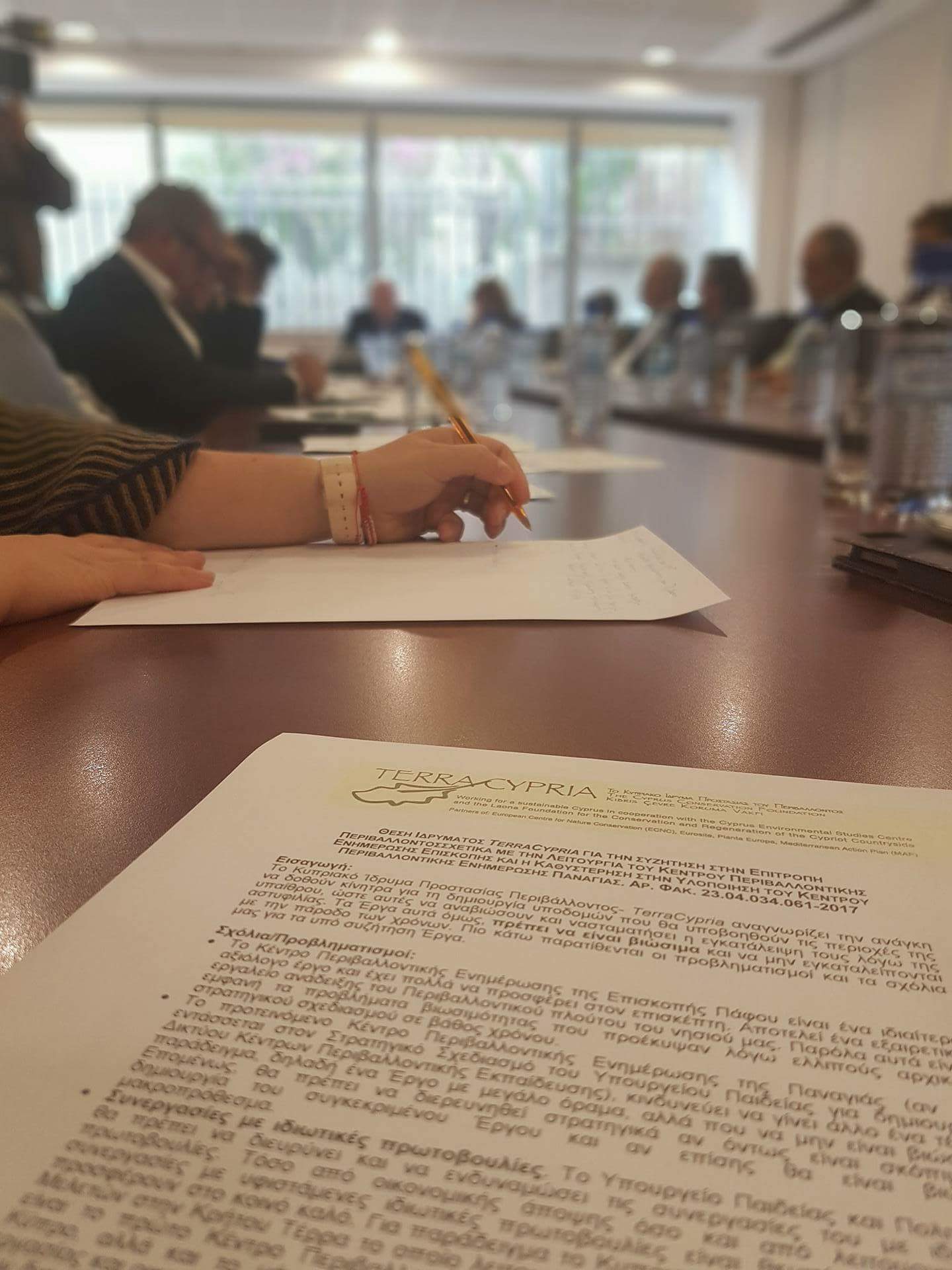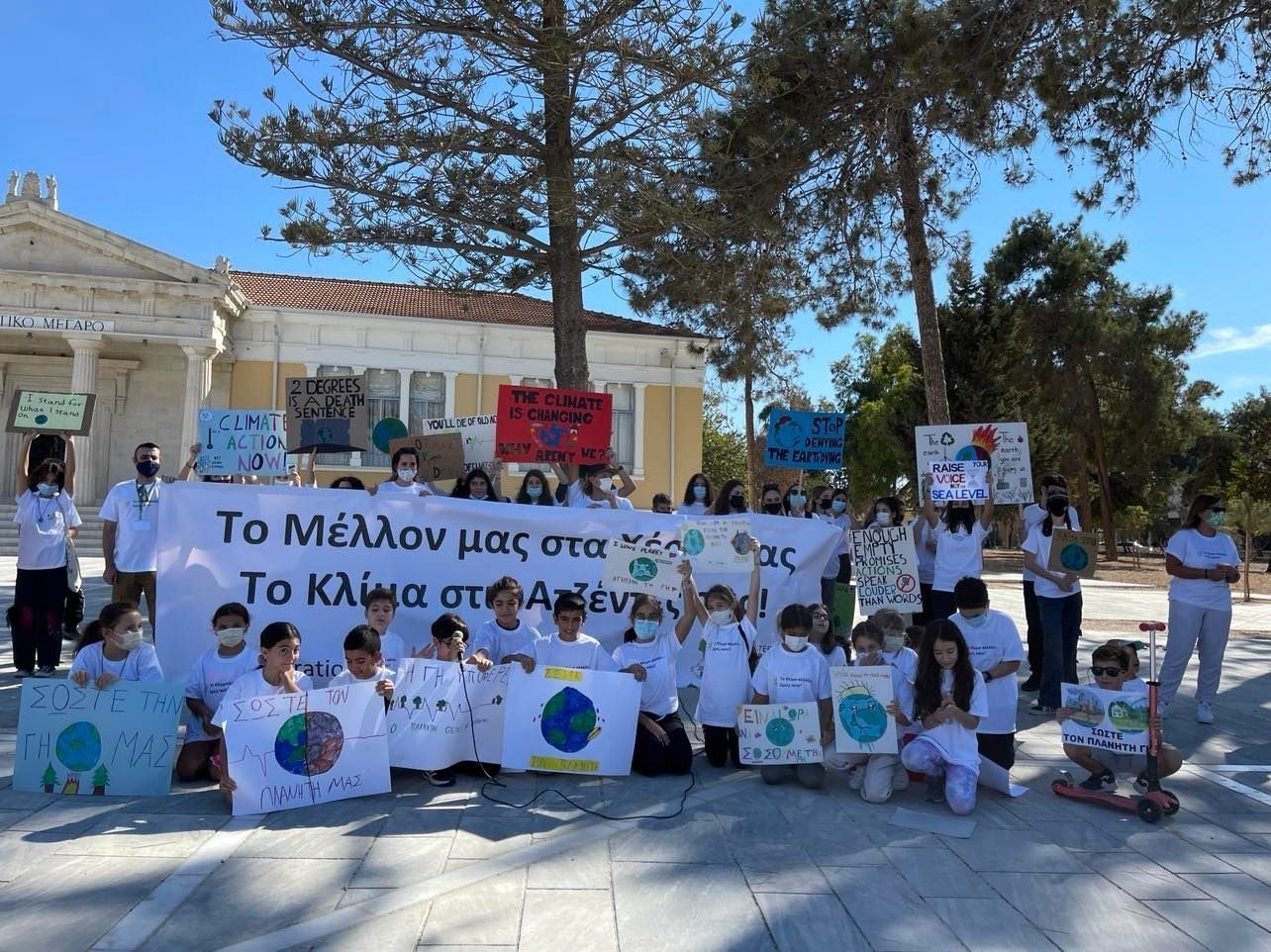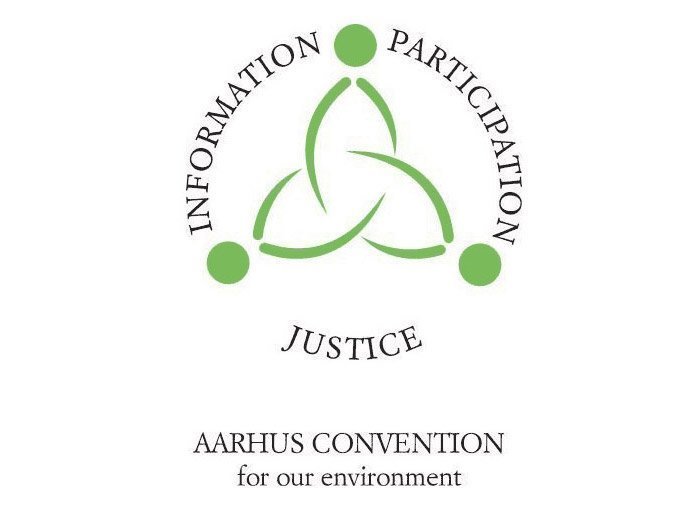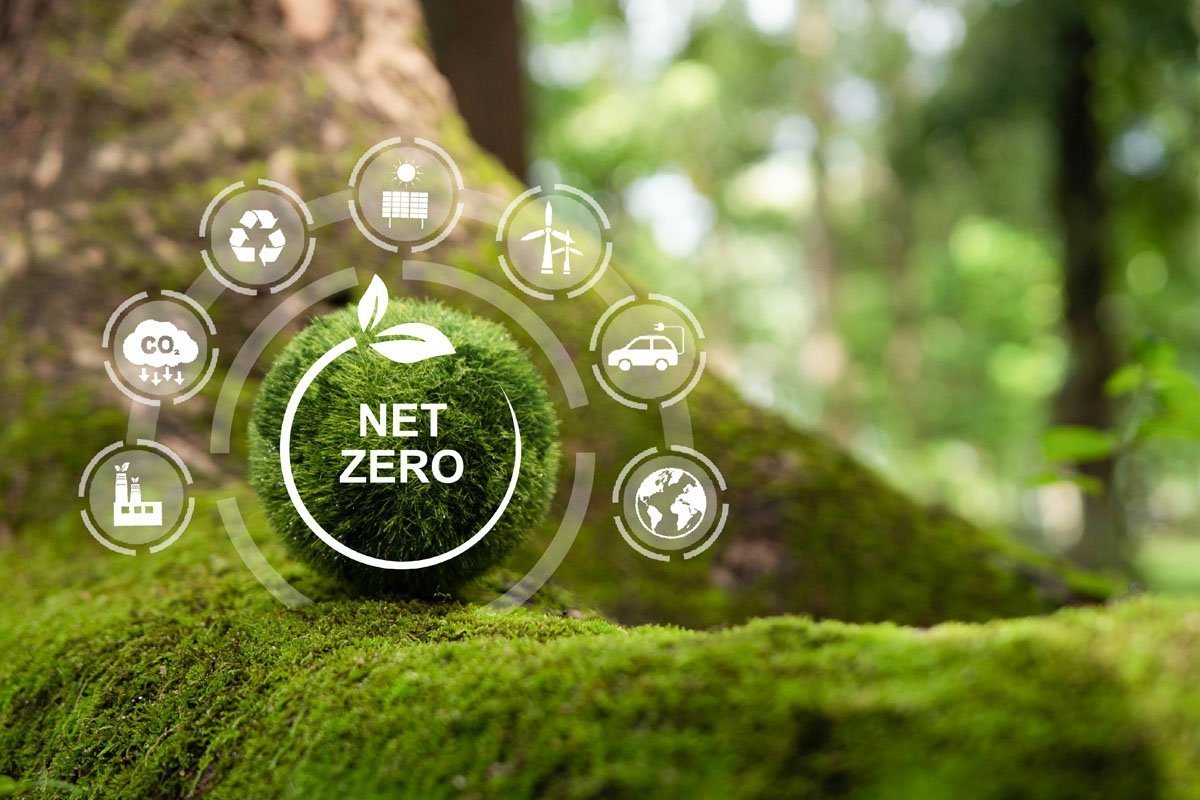Participation in Parliamentary Committees of the House of Representatives
As part of our activities, we regularly participate in meetings of Parliamentary Committees of the House of Representatives. The main Committees we participate in, are the Parliamentary Committee on the Environment, the Parliamentary Committee on the Interior and the Parliamentary Committee on Agriculture and Natural Resources.
We provide written position papers and arguments on a wide range of topics aiming in promoting sustainability and environmental protection.
Parliamentary Committee on the Environment:
- B1. The environmental impact on Akrotiri Salt Lake and Lake Makrias 09/04/2025
B2 Τhe pollution of the Polemidia Lock - On the protection and management of birds and game
- The complaints about arbitrary interventions in a protected forest area in the community of Prastios (Kellaki) and the possible responsibilities of the competent authorities 13/11/2024
- The potential environmental impact of the construction of the Environmental Information Centre of Lakatamia 09/10/2024
- The environmental impacts resulting from the construction of a house near the riverbed at Pano Platres and the actions that need to be taken to restore the environment of the area 25/09/2024
- The environmental impacts resulting from the construction of a house near the riverbed at Pano Platres and the actions that need to be taken to restore the environment of the area 18/09/2024
- The construction and operation of a 180MW and 3.5 m2 PV park in Lythrodontas, Analiontas, Kataliontas and Mathiatis and environmental impacts 04/09/2024
- The consequences of the recent devastating fires, prevention and restoration measures 03/07/2024
- The need to ensure the protection of the natural environment of Akamas in the proposed Akamas Local Plan 03/07/2024
- The protection and conservation of wild birds and preys 15/05/2024
- The construction and building of a temple in a “Natura” area in Cape Greco and the possible environmental impact 10/04/2024
- The fire operational planning of the Dept. Forestry Department and the preliminary measures taken for the prevention and suppression of forest fires in order to protect the environment 03/04/2024
- The need to ensure the protection of the natural environment of Akamas in the proposed Akamas Local Plan 27/03/2024
- Ways of safeguarding fertile agricultural land and reforestation areas from the installation of photovoltaic parks 26/03/2024
- The environmental impact of the construction and redevelopment plan of the park in the area of the Pattihio Municipal Theatre in Larnaca 13/03/2024
- The creation of a campsite in the area of Mantras of Kambio in the forest of Machairas and the possible environmental impacts 24/01/2024
- Proposal for a Directive of the European Parliament and of the Council on soil monitoring and resilience 17/01/2024
- The complaints about arbitrary interventions in a protected forest area in the community of Prastios (Kellaki) and the possible responsibilities of the competent authorities 10/01/2024
- The need to ensure the protection of the natural environment of Akamas in the proposed Akamas Local Plan 29/11/2023
- The need to ensure the protection of the natural environment of Akamas in the proposed Akamas Local Plan 22/11/2023
- Β1. The complaints about arbitrary interventions in a protected forest area in Prastio and the possible responsibilities of the responsible persons B2. The environmental and operational impacts due to the diversion of the Kouri River and other interventions on the water resources of the area 18/10/2023
- The devastating effects of fires on the natural environment 06/09/2023
- Regarding the assessment of environmental impacts from certain projects 05/07/2023
- The phenomenon of the widespread infestation of pines by caterpillars is observed and the possible effects on health and the environment 05/04/2023
- The actions of the Republic of Cyprus regarding the construction of the nuclear power plant at Akkuyu in Turkey and the environmental consequences for Cyprus 29/03/2023
- The EU goal to reduce greenhouse gas emissions by 55% by 2030 and the proposed package of legislative reforms and actions to achieve the Climate Target 22/03/2023
- The need to ensure the protection of the natural environment of Akamas in the proposed Akamas Local Plan 22/02/2023
- The process of selecting a site for the relocation of asphalt production plants and any problems that arise 16/11/2022
- Animal protection and welfare 19/10/2022
- Fire Prevention in the Countryside 21/09/2022
- The National Strategic Planning for education for the environment and sustainable development: The course of its implementation and the need for its harmonization with international and national policies 14/09/2022
- The new residential developments that are planned to take place in the wetlands of Akrotiri Limassol, and the possible environmental pollution 07/09/2022
- The need to ensure the protection of the natural environment of Akamas in the proposed Akamas plan.The possible effects of urban planning based on Akamas Plan 08/06/2022
- The protection of the area that borders with Livadia – Oroklini -Pyla highway, from from noise pollution and the need to install sound barriers 18/03/2022
- The need of reconstitution of the Anti – poaching squad and take measures against poaching of endemic mouflon 30/03/2022
- The complaints for sea pollution in fishing shelters of Kato Pyrgos. The possible effects on people’s health and environment and the solutions 23/03/2022
- Environment Committee re The Waste (Construction and Demolition Waste Management) Regulations 2021 19/01/2022
- The process of site selection for the relocation of asphalt production plants and any problems created (File no 23.04.038.949-2021) 8/12/2021
- The implementation timeframe of the provisions of the Akamas Management Plan. (File No 23.04.038.954-2021), 10/11/2021
- Fit for 55: The European Union target to reduce greenhouse gas emissions to at least fifty-five percent (55%) by 2030 and the proposed legislative package reforms and actions needed, to achieve this climate target (File No 23.07.018.001), 3/11/2021
- The potential environmental problems and the degradation of the quality of life of the inhabitants from the operation of polluting factories in the areas of Tseri, Pera Chorio, Idali, Latsia and Geri. (File No 23.07.018.001), 21/10/2021
- The Environmental Impact Assessment Law from specific projects Law of 2020. Amendment of the provisions of the Basic Law 127 (I) / 2018 regarding the Consultant Registry (File No 23.01.061205-2020), 13/10/2021
- The Protection and Management of Wild Birds and Prey (Amendment) Law of 2021 (File No 23.01.062.160-2021), 13/10/2021
- The Waste (Waste Management of Medicinal Products from Domestic Use) Regulations of 2021. (File No 23.03.058.005-2021), 6/10/2021
- The construction of a hotel at Pano Platres and its Environmental Impacts (File No 23.07.0018.001), 6/10/2021
- The construction of a hotel at Pano Platres and its Environmental Impacts (File No 23.07.0018.001), 29/9/2021
- The Industrial Emissions (Integrated Pollution Prevention and Control) (Amendment) Law of 2021. (File No 23.01.062.122-2021), 7/7/2021
- The Atmospheric Pollution Control (Amendment) Law of 2021 (File No 23.01.062.123-2021), 7/7/2021
- The Atmospheric Pollution Control (Prevention and Reduction of Air Pollution from Asbestos (Amendment) Regulations of 2021. (File No 23.03.058.039-2021), 7/7/2021
- Green Points: Information of the Environment Parliamentary Committee for the design, operation and problems at all the Distrcts of Cyprus (The Matter was proposed from Mr. George Loukaidis, Evanthias Savvas and Nikos Kettirou) (3.3.2021). (File No 23.04.038.075), 7/4/2021
- The Packaging and Waste from Packaging (Amendment) Law of 2020 (File No 23.01.061.195-2020), 10/3/2021
- The Waste (Amendment) Law of 2020 (File No 23.01.061.193.2020), 10/3/2021
- The Waste (Waste from Electrical and Electronic Equipment) (Amendment) Regulations of 2020. (File No 23.03.057.106-2020), 10/3/2021
- The Waste (Landfills) Regulations (File No 23.03.057.107-2020). (File No 23.03.057.107.2020), 10/3/2021
- The Waste (Batteries or Accumulators) Regulations (Fac. No. 23.03.057.108-2020), 10/3/2021
- Information of the Environment Parliamentary Committee from the Minister of Agriculture, Rural Development and Environment for the government policy regarding the protection of Akamas, as well as the latest actions related to the Management Plan for the Sustainable Development of the Akamas National Forest Park, 10/3/2021
- The Law on Environmental Responsibility regarding the Prevention and Rehabilitation of Environmental Damage (Amending) Law of 2021. (File No. 23.01.062.013-2021), 24/02/2021
- Information from the competent government departments on the process of licensing a photovoltaic park in the communities of Flasou and Agios Epiphanios Solias, on the effects it will bring to the area, as well as on the monitoring of the terms of the MEEP. (Ex officio examination by decision of the Joint Environment Committee (17.2.2021) (File No. 23.04.038.049-2021), 24/02/2021
- The Packaging and Packaging Waste (Amending) Law of 2020. (File. No. 23.01.061.195-2020), 24/02/2021
- The Law on Waste (Amending) Law of 2020. (File No. 23.01.061.193-2020), 24/02/2021
- The Environmental Impact Assessment for certain projects (Amending) Law of 2020 (N.3) (File. No. 23.01.061.206-2020), 10/02/2021
- The Packaging and Packaging Waste (Amending) Law of 2020. (File. No. 23.01.061.195-2020), 10/02/2021
- The Law on Waste (Amending) Law of 2020. (File No. 23.01.061.193-2020), 10/02/2021
- The Packaging and Packaging Waste (Amending) Law of 2020. (File. No. 23.01.061.195-2020), 03/02/2021
- The Law on Waste (Amending) Law of 2020. (File No. 23.01.061.193-2020), 03/02/2021
- The proposed installation and operation of an asphalt production unit in the communities of Pyrga, Kornos, Parekklisia and Idali and the possible negative effects on the quality of life of the inhabitants of the area. (Examination of its own motion by decision of the Parliamentary Committee on Environment and the deputies Mr. George Perdikis and Anna Theologos) (5.9.2018) (File No. 23.04.035.112-2018), 27/01/2021
- Informing the Parliamentary Committee on the Environment about the process of selecting a relocation site for asphalt production plants and any problems that may arise. (Ex-officio examination by decision of the Joint Environment Committee of the Member of Parliament Mrs. Annita Dimitriou) (4.11.2020) (File. No. 23.04.037.213-2020), 27/01/2021
- The process followed by the competent ministries for the institutionalization and characterization of the area as a heavy industry zone, due to the problems created by the erratic placement of factories for the production and recycling of bituminous concrete in communities in the greater Nicosia area. (Examination of its own motion following a proposal by the MP Mrs. Anna Theologos) (29.5.2019) (File No. 23.04.036.098-2019), 27/01/2021
- Informing the Joint Environment Committee about the plans and actions taken by the Government in relation to its commitment to relocate asphalt production units and the licensing of new units, 27/01/2021
- The Waste (Amending) (No. 2) Law of 2020. (No. Fac. 23.01.061.219-2020) Discussion on the principle, 13/01/2021
- Informing the Parliamentary Committee on the Environment about the problems created by the operation of livestock units (File. No. 23.07.018.001), 18/11/2020
- The Maritime Spatial Planning (General Provisions) Regulations of 2020 (File No. 23.03.057.066-2020), 04/11/2020
- The Marine Spatial Planning (Public Consultation) Regulations of 2020 (File No. 23.03.057.065-2020), 04/11/2020
- The Maritime Spatial Planning and Other Related Issues (Amending) Law of 2020. (File No. 23.01.061.118-2020), 04/11/2020
- The Animal Protection and Welfare (Possession and Sale of Pet Animals) Regulations of 2020. (Ref. No. 23.03.057.036-2020), 04/11/2020
- The Maritime Spatial Planning (General Provisions) Regulations of 2020 (File No. 23.03.057.066-2020), 21/10/2020
- The Marine Spatial Planning (Public Consultation) Regulations of 2020 (File No. 23.03.057.065-2020), 21/10/2020
- The Maritime Spatial Planning and Other Related Issues (Amending) Law of 2020. (File No. 23.01.061.118-2020), 21/10/2020
- The Animal Protection and Welfare (Possession and Sale of Pet Animals) Regulations of 2020. (Ref. No. 23.03.057.036-2020), 21/10/2020
- The Maritime Spatial Planning and Other Related Issues (Amending) Law of 2020. (File No. 23.01.061.118-2020), 22/07/2020
- The Law on the Protection and Management of Wild Birds and Hunting (Amending) Law of 2019. (Ref. No. 23.01.060.251-2019), 01/06/2020
- The Animal Protection and Welfare Act (Possession and Sale of Companion Animals) Regulations of 2020. (File No. 23.03.057.036-2020), 24/06/2020
- The problems that arise from the demolition of the former settlement “Vereggaria” in Kato Polemidia and the environmental extensions. (3.6.2009) (File No. 23.04.037.077-2020), 10/06/2020
- The Forestry (Amendment) Law of 2017. (Proposed Law by Mr G. Perdiki and Ch. Theopémbos of the Ecologists-Citizens’ Movement) (No. 23.02.058.043-2017)The Forestry (Amendment) Law of 2017. (Proposed Law by Mr G. Perdiki and Ch. Theopémbos of the Ecologists-Citizens’ Movement) (No. 23.02.058.043-2017)
- The Forestry (Amendment) Law of 2017. (No. 23.02.058.043-2017), 27/05/2020
- The Regulation of the Distribution of Advertising Material Law of 2016. (File No. 23.02.057.036-2016), 04/03/2020
- The intervention at Sodap beach in the municipality of Paphos and the potential impact on the natural environment of the coast. (File no. 23.04.037.024-2020), 26/02/2020
- Extractive Waste Management (Inspections) Regulations 2020 (File No. 23.03.056.039-2019), 05/02/2020
- Mining Waste Management (Use of Best Available Techniques in the Case of Cyanide in a Swampy Lake and Cyanic Acid Cleavable in a Swampy Lake and Cyanic Acid Decomposable) Regulations 2020. (File no. 23.03.056.038-2019), 05/02/2020
- The Mining Waste Management (Amendment) Act of 2019. (File No. 23.02.060.076-2019), 05/02/2020
- Informing the Parliamentary Committee on the Environment about the implementation of the provisions of the Akama Management Plan. (30.8.17) (File No. 23.04.034.276-2017), 27/11/2019
- Government policy on the protection and management of Akama. (30.8.17) (File No. 23.04.034.276-2017), 27/11/2019
- Illegal interventions on the riverbed of Akakios, the ecological disaster caused and the measures needed to restore the natural environment of the area. (File No. 23.04.035.012-2018), 20/11/2019
- The proposed installation and operation of an asphalt plant in the communities of Pyrga, Kornos, Parekklisia and Idali and the potential negative impacts on the quality of life of the local population. (File no. 23.04.035.112.2018), 13/11/2019
- The Regulation of the Distribution of Advertising Material Law of 2016. (File No. 23.02.057.036-2016), 04/09/2019
- Waste Management of Extractive Industries (Amendment) Law of 2019. (File No. 23-02-060-076-2019), 03/07/2019
- The Prevention and Management of the Importance and Spread of Invasive Species Law of 2019. (File No 23.01.060.146.2019), 26/06/2019
- The construction of large photovoltaic parks between the communities of Troullon, Avdellero and Kellion and the possible environmental impacts and problems that may arise in the border communities of the Larnaca District (File. No. 23.04.036.025-2019), 19/06/2019
- The intervention of the Department of Forests in the protected spawning beaches of the sea turtles of Limnos and Argakas in the Gulf of Chrysochous and the impact on the natural environment of the area (File No 23.04.036.075-2019), 2/05/2019
- The intervention of the Department of Forests in the protected spawning beaches of the sea turtles of Limnos and Argakas in the Gulf of Chrysochous and the impact on the natural environment of the area (File No 23.04.036.075-2019), 3/04/2019
- Presentation by the Minister of Agriculture, Rural Development and Environment of the Draft of the National Plan of Cyprus for Energy and Climate for the period 2021-2030, 27/03/2019
- Updating the Parliamentary Committee on the Environment for the intended development of photovoltaic systems in the communities of Akrotiri and Malounta (File No. 23.07.018.001), 6/03/2019
- The construction of large photovoltaic parks between the communities of Troullon, Avdellero and Kellion and the possible environmental impacts and problems that may arise in the border communities of the Larnaca District (File. No. 23.04.036.025-2019), 6/03/2019
- The proposed installation and operation of an asphalt production plant in the Pyrga and Kornos communities and the possible negative impact on the quality of life of the local residents (File No. 23.04.035.112-2018), 13/02/2019
- The proposed installation and operation of an asphalt production plant in the Pyrga and Kornos communities and the possible negative impact on the quality of life of the local residents (File no. 23.04.035.112-2018), 6/02/2019
- Updating the House of Representatives on the operation of Green Points (File No. 23.04.034.183-2017), 30/01/2019
- The process of rehabilitation of abandoned groundfills (File no. 23.04.034.197-2017), 16/01/2019
- The Regulation of the Distribution of Advertising Material Law of 2016 (File No. 23.02.057.036-2016), 16/01/2019
Parliamentary Committee on Energy, Trade, Industry and Tourism
- About the Creation of a Household Crafts Register 24/10/2023
- About the Creation of a Household Crafts Register 10/10/2023
- About the Creation of a Household Crafts Register 03/10/2023
- The 2022 Law on the Establishment and Operation of Visitable Farms 04/04/2023
- Regulation of the establishment and operation of hotels and tourist accommodation 29/11/2022
- The Operation of the Renewable Energy Sources Fund and Energy law of 2022 29/03/2023
- The 2022 law on specifications, sustainability criteria and reduction of fuel emissions 08/03/2022
- The Operation of the Renewable Energy Sources Fund and Energy law of 2022 01/03/2022
- The 2022 Law on Specifications, Sustainability Criteria and Reduction of Fuel Emissions (File no 23.01.063.047-2022). RES operation and saving energy law (File no 23.01.063.048-2022). Promotion and Encouragement of using the RES law of 2022 (File no23.01.063.049-2022) 15/02/2022
Parliamentary Committee on Agriculture and Natural Resources:
- Ways of safeguarding fertile agricultural land and reforestation areas from PV park installations 11/03/2025
- Forestry Act of 2024 03/12/2024
- The Fisheries (Amendment) Regulations 2024 (Ref. 23.03.061.1642024). 26/11/2024
- Ways of safeguarding fertile agricultural land and reforestation areas from the installation of photovoltaic parks 10/09/2024
- Ways of safeguarding fertile agricultural land and reforestation areas from the installation of photovoltaic parks 14/05/2024
- Ways of safeguarding fertile agricultural land and reforestation areas from the installation of photovoltaic parks 26/03/2024
- Ways of safeguarding fertile agricultural land and reforestation areas from the installation of photovoltaic parks 24/10/2023
- Plants produced by new genomic techniques 03/10/2023
- The damages caused at coastal crop agricultural areas of Paphos by Woodpigeons, due to overpopulations and the needs to solve the problem (Ref. No. 23.07.009.001), 21/9/2021
- Problems caused by desalinated water in pipelines and solar water heating systems. (18.2.2020) (File No. 23.04.037.051-2020), 03/11/2020
- Problems arising from fishing activity as a result of the dumping of large quantities of water into the sea through pipelines as a result of excavations for the construction of tall buildings. (File no. 23.04.036.001-2020), 14/01/2020
- The Uniform Water Management Law (Use of Waterborne Works for Water Sports) Regulations of 2019. (File No. 23.03.056.027-2019), 14/01/2020
- The Uniform Water Management Law (Use of Waterborne Works for Water Sports) Regulations of 2019. (File No. 23.03.056.027-2019), 07/01/2020
- The Uniform Water Management Law (Use of Waterborne Works for Water Sports) Regulations of 2019. (File No. 23.03.056.027-2019), 19/11/2019
- The Uniform Water Management Law (Use of Waterborne Works for Water Sports) Regulations of 2019. (No. 23.03.056.027-2019), 15/10/2019
- The Uniform Water Management Law (Use of Waterborne Works for Water Sports) Regulations of 2019. (File No. 23.03.056.027-2019), 28/03/2019
- The Uniform Water Management Law (Use of Waterborne Works for Water Sports) Regulations of 2019. (File No. 23.03.056.027-2019), 7/05/2019
- The Uniform Water Management Law (Use of Waterborne Works for Inland Waterway Sports) Regulations of 2019. (File No. 23.03.056.027-2019), 9/04/2019
- Ways of preserving fertile agricultural land and reforestation areas from park and photovoltaic facilities (File No. 23.04.035.089-2018), 26/03/2019
- The Fisheries (Amending) Regulations of 2019. (Ref No 23.03.054.097-2017), 5/03/2019
- The Fisheries (Amendment) Law of 2019 (Ref No 23.01.060.035-2019), 5/03/2019
- The Water Protection and Management Law (Reservoir Protection Measures, whose Water is also intended for Human Consumption) Regulations of 2018 (File No. 23.03.055-099-2018), 8/01/2019
Parliamentary Committee on Internal Affairs:
- The Regulation on the prevention and suppression of fires in the countryside 28/11/2024
- The Regulations on the Facilitation of Strategic Lighting Projects 04/07/2024
- The Regulations on the Facilitation of Strategic Lighting Projects 27/06/2024
- Renovation projects in the Public Garden of Limassol 10/11/2022
- The rehabilitation and reconstruction of Misiaouli and Kavazoglou streets, the procedures followed and the consultations with the shopkeepers (File No. 23.04.034.349-2017), 6/11/2017
- The Immovable Property Amending Laws and Regulations (File No. 23.01.057.080-2016, File No. 23.01.058.102-2017, File No. 23.03.054.055-2017), 14/07/2017
Parliamentary Committee on Transport, Communications and Public Works:
- Opening of Makarios Avenue to traffic and its compatibility with the strategic planning of sustainable mobility and urban development 12/06/2025
- Implementation of the Consultation Guide of the Minister of Finance by the state agencies before the submission of legislation to the House of Representatives (File No 23.04.036.019-2019), 20/03/2019
- On regulating the movement of bicycles law of 2011 (File No. 23-01-052-192-2011), 16/03/2018
Parliament Committee on Institutions, Merit and the Commissioner for Administration (Ombudsman)
- The need to adopt a statutory public consultation process as an effective means of governance, participatory democracy and transparency based on good practices emerging from other EU member states 13/04/2022
- Implementation of the Consultation Guide of the Minister of Finance by the state agencies before the submission of legislation to the House of Representatives. (File No 23.04.036.019-2019), 20/03/2019
Parliament Committee on Labour and Social Insurance
- The Atmospheric Pollution Control (Unlicensed Facilities) (Amending) Regulations of 2020. (Ref. No. 23.03.057.100-2020) (Repeal of Part C of the Annex to the basic regulations so that the licensed facilities include the safe facilities ), 12/01/2021
- Atmospheric Pollution Control (Unlicensed Facilities) (Amending) 2021 Regulations. (File No. 23.30.057.100-2020) (Abolition of Part C of the Annex of the basic regulations so that the licensed facilities include the asphalt concrete facilities), 26/01/2021
Parliament Committee on Development Plans and Public Expenditure Control
- Control of the activation procedure of the fish farm licence in the area of Moni 07/11/2024
- Annual Report of the Auditor General of the Republic for the Year 2022. 24/10/2024
- Annual Report of the Auditor General of the Republic for the Year 2018. [Lease of State Land to a Company for the purposes of Construction and Operation of Photovoltaic Parks. Special Report 20.11.2020 (ΥΠΕΣ / 03/2020) (Ex-officio examination by decision of the Joint Committee for the Monitoring of Development Plans and Control of Public Expenditures) (7.2.2020) (Ref. No. 23.04.037.041-2020) (File No. 05.14.007.015), 28/01/2021
Parliament Committee on Legal Affairs, Justice and Public Order
- The Second Amendment to the Constitution Act of 2022 20/11/2024
- The Second Amendment to the Constitution Act of 2022 (Proposals for a law to constitutionally guarantee the right to a healthy and sustainable environment and provide the necessary procedural guarantees / the right to life in conditions that ensure the protection of health, the environment and biodiversity) 10/07/2024
Climate Crisis
The climate crisis is the greatest challenge of our times and Cyprus must contribute positively to the global efforts to reduce greenhouse gas emissions.
Scientists are warning of catastrophic consequences if we don’t act now and reduce our emissions dramatically in the next 10 years to keep temperature from rising to more than 1.5 °C compared to pre-industrial times. Terra Cypria recognizes the dangers of in-action, for both humans and the environment, and is increasingly involved in the issue by pushing the government to implement national policies that will bring the necessary cuts to our CO2 emissions on time whilst benefiting society in the transition to a green economy.
For this to be achieved, a transformational change of society is needed. That is why, in collaboration with other experts in the field of energy and climate policy, we formulate recommendations to policy makers and keep check of the progress and the impact existing and future policies have, and will have, on mitigating climate in Cyprus.
Effects of Projects, Schemes and Programs on the Environment
We are especially interested in the effects (positive or negative) that relevant projects and programs may have on the environment of our island. For this reason, we participate in various governmental technical committees which assess the environmental impact of such projects and programs. In particular, we are called as a permanent member of the ad-hoc committee operated by the Environment Department to assess the impact that projects and programs may have on sections of the Ecological Areas of the Natura 2000 Network. The purpose of this Committee is to ensure that the species and habitats for which these Areas were designated will not be significantly affected by any developments within or near them. We also follow closely the agenda of another two committees dealing with impact assessments and often, when we feel that our contribution can help to a better assessment of the environmental impacts, we request to be invited and take part in their sessions. In particular, we monitor the work of the Environmental Impact Assessment Committee, which examines projects that may have an impact on the environment. The Committee operates under the law for Environmental Impact Assessment of certain projects, Law 140 (I) 2005 to 2014. The other Committee is the Environmental Impact Assessment Committee for Plans and/or Programs, which examines the impact that Plans and Programs may have on the Environment. This Committee operates according to the law for Environmental Impact Assessment of Certain Plans and Programs, Law 102 (I)/2005
Public Participation in environmental decisions – Aarhus Convention
One of our main aims is to ensure good governance by the state of Cyprus’s environmental obligations. We actively promote public awareness and participation; and we are strongly committed to participating in public consultations. At the same time, we monitor and promote the implementation of the Aarhus Convention for the public’s free access to environmental information, their active participation in decision-making and access to justice on environmental matters.
Participation at EU Level
We are trying to keep up-to-date on various environmental policy issues taking place at a European level so that we can act accordingly at a local level. For this reason, we are members of the European Environment Bureau (EEB) and we participate in several of its working groups. We are also a member of EUROSITE, an organisation that promotes good management practices of Protected Areas, as well as of the ECNC (European Center for Nature Conservation). Likewise we are a member of the ECOS (European Environmental Citizens Organisation for Standardization). Concerning Mediterranean issues in particular, we are a member of the Mediterranean Information Office for the Environment, Culture and Sustainable Development (MIO – ECSDE). Since 1997, Terra Cypria has been a partner NGO in the work of the Standing Committee of the Berne Convention for the Protection of Wildlife and Habitats. The foundation is also a member of the International Union for Conservation of Nature (IUCN).
The Circular Economy
Turning the European economy towards sustainability by 2050 is a big EU bet. The Circular Economy meets the need for sustainable development, at a time when economic growth is consuming more and more of the planet’s natural resources. A typical example is that the average European citizen produces 475kg of waste each year and 28% ends up in landfills. Cyprus holds the second place in the EU.28, producing 626kg of waste each year, of which 75% ends up in landfills and only 13% is recycled (Eurostat, 56/2016).The transition to a circular economy promotes change (with “waste” being transformed into raw material, aiming at reuse, repair, renewal and recycling of existing materials and products). The objective is the linear economy which is based exclusively on resource mining, to be replaced by a more circular economy that is more sustainable.Also, according to the EU. Two million jobs are expected to be created through better product design, re-use and waste prevention, while € 600 billion could be saved if we use our resources more efficiently.Changing towards a cyclical economy requires the involvement and participation of all, with policymakers taking the leading role. Companies will need to redesign the production chains of their products.
Consumers play the most catalytic role in achieving change through their choices. The more conscious consumers are, the more pressure is exerted on the creation of goods and services that are involved in the circular economy.
In this newsletter you can see how consumers can choose sustainable products and services.
The Terra Cypria Foundation participates in the Working Group of the European Environmental Network EEB for Circular Economy.
The video: “How do we make gold from garbage?” is illustrates how the circular economy could work.
Standardization
The EU attaches increasing importance to standardization in new European directives. Whereas, in the past, a Directive would have included lengthy descriptions on how the directive would be implemented, lately, the trend is to reference a Standard, on which the Directive implementation will wholly, or partly based.
Standardization can be a valuable tool for NGOs, for environmental protection, sustainable development resource use and the circular economy.
Terra Cypria is a partner in project AccESS, a pan-European project for standardization and EU citizens. The project includes training in analyzing standards under discussion and offering input to ECOS for the inclusion of environment parameters in EU Standards, in an effort to promote sustainable development and wise resource use.
Sustainable Tourism
The tourism industry has been one of the most important sectors of the economy of Cyprus for decades, significantly contributing to its Gross Domestic Product (GDP) and labour market. However, it has not been adequately appreciated that tourism itself depends on our environment.
The natural environment provides cultural ecosystem services that include recreation and tourism. If not properly managed, these activities can threaten ecosystems. This has been seen in Cyprus during recent decades in many cases where protected areas and the countryside have been facing multiple pressures as a result of unsustainable development. Such pressures include habitat degradation and land use change.
Since the start, Terra Cypria has worked to influence national policies for the great returns that come from preserving nature. The tourism sector stands ti benefit from policies that minimise development in natural areas and preserve the features that attract tourists to Cyprus, for example, by reducing seasonality.
Projects
The participation of the Terra Cypria Foundation in various Projects promotes our strategic goals and gives us the opportunity to develop our expertise on key issues.
Some of our latest projects include: the recording of all wetlands in Cyprus; raising awareness of the value of biodiversity through mass media and testing, implementing and evaluating pilot actions and methodologies for the conservation of High Nature Value Farmland Areas (HNVF) in Cyprus.
Click here for more information on the projects that we have participated in or completed.

